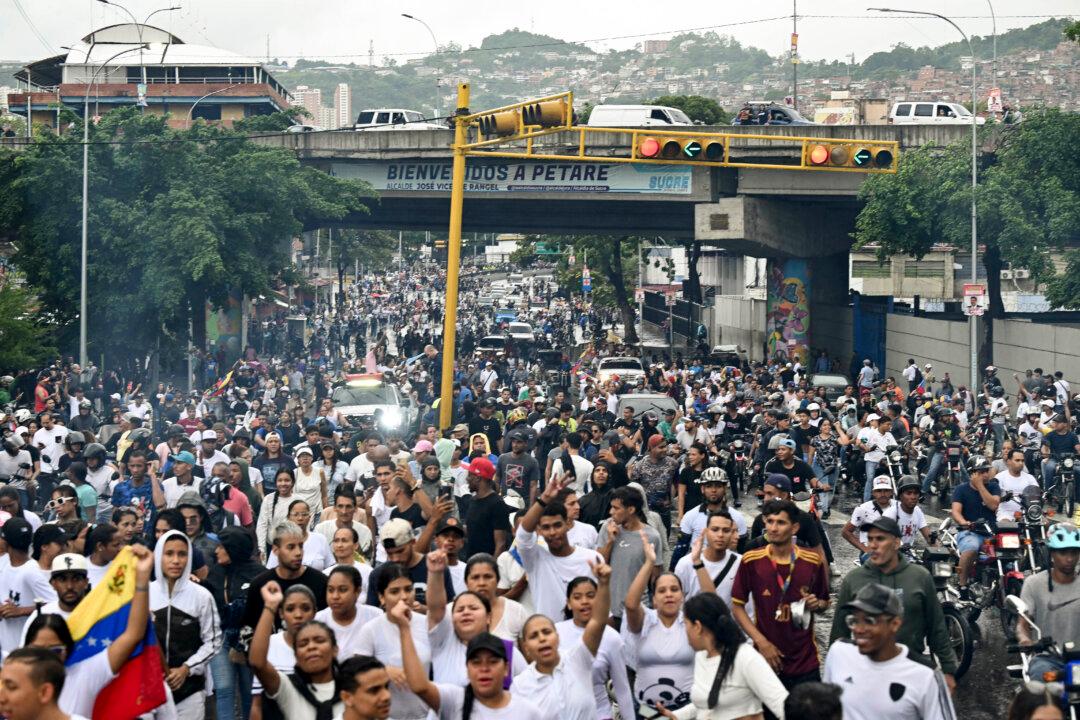Venezuelan leader Nicolás Maduro’s government has intensified its use of the “harshest and most violent” tools of repression in Venezuela in the wake of a disputed election in July, United Nations human rights experts said following a fact-finding mission.
Venezuela’s security forces, who are loyal to Maduro and the ruling United Socialist Party of Venezuela, have carried out arbitrary detentions, torture, and sexual violence, according to a Sept. 17 report on the mission’s findings.





